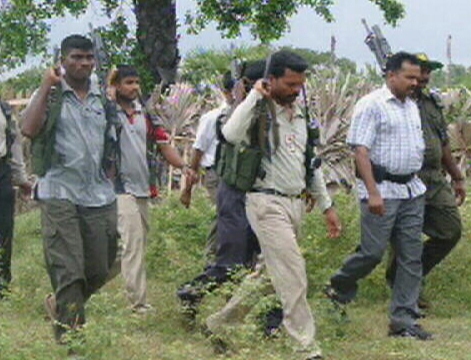Tamil Tiger Archive
 This collection of footage presents a nation battling decades of civil war and seeing thousands of political arrests. Years of bloodshed in Sri Lanka places today's violence in its proper context.
This collection of footage presents a nation battling decades of civil war and seeing thousands of political arrests. Years of bloodshed in Sri Lanka places today's violence in its proper context.
So why did the ceasefire between the government and the Tamil Tigers agreed 2 years ago, falter? Over 2,000 Sri Lankans having been victims of "extrajudicial killings, abductions", allegedly by both government death squads and Tamil rebels. Visika Dharmadasa, whose son is still missing, says "its time to pray for peace and answers".
Sri Lanka's Dirty War - 12'35''
In the past 18 months, over 2,000 Sri Lankans have been kidnapped or murdered, allegedly by government death squads. Now Human Rights Watch is calling for aid to Sri Lanka to be withheld. The Tamil homeland of Northern Sri Lanka is once again a war zone. The government is convinced it can crush the rebels within three years. "They only have this area left", states Brig Prasad. As well as targeting Tamil rebels, the government is accused of thousands of; "extrajudicial killings, abductions, disappearances". Most of the disappeared are ethnic Tamils. MP Mano Ganesan believes the abductions are; "a means of crushing the Tamil national struggle". The capital, Colombo, teams with police and soldiers but none of the abductors have been caught. Circle of Violence - 27'45
This moving report looks back through 30 years of bloodshed in Sri Lanka to place today's violence in its proper context. Why did the ceasefire, agreed two years ago, falter? In 1956, an ambitious politician used the race card to be elected. He promised to make Sinhala the official language. Tamils who weren't fluent were dismissed, sparking a backlash that contributed to the emergence of the Tigers. In the war that followed, an estimated 40,000 disappeared. "We live in a country where anyone can take away another person, and nobody can do anything to stop it". Sri Lanka's Silent Tsunami - 27'00''
Decades of civil war in Sri Lanka has seen tens of thousands of political arrests. Only in Saddam's Iraq have more people disappeared. Frustrated by disinterested authorities, relatives of the missing are growing desperate. Visika Dharmadasa has not heard from her soldier son since he went missing in 1998. Visika has staunchly rejected the temptation of traditional witch-doctor methods to bring him back. Instead she is bringing together the mothers of the missing from both sides of the fighting "to pray for peace and answers, and learn from each other". She hopes to bring a "sustainable peace" out of their pain.
FULL SYNOPSIS
In the past 18 months, over 2,000 Sri Lankans have been kidnapped or murdered, allegedly by government death squads. Now Human Rights Watch is calling for aid to Sri Lanka to be withheld. The Tamil homeland of Northern Sri Lanka is once again a war zone. The government is convinced it can crush the rebels within three years. "They only have this area left", states Brig Prasad. As well as targeting Tamil rebels, the government is accused of thousands of; "extrajudicial killings, abductions, disappearances". Most of the disappeared are ethnic Tamils. MP Mano Ganesan believes the abductions are; "a means of crushing the Tamil national struggle". The capital, Colombo, teams with police and soldiers but none of the abductors have been caught. Circle of Violence - 27'45
This moving report looks back through 30 years of bloodshed in Sri Lanka to place today's violence in its proper context. Why did the ceasefire, agreed two years ago, falter? In 1956, an ambitious politician used the race card to be elected. He promised to make Sinhala the official language. Tamils who weren't fluent were dismissed, sparking a backlash that contributed to the emergence of the Tigers. In the war that followed, an estimated 40,000 disappeared. "We live in a country where anyone can take away another person, and nobody can do anything to stop it". Sri Lanka's Silent Tsunami - 27'00''
Decades of civil war in Sri Lanka has seen tens of thousands of political arrests. Only in Saddam's Iraq have more people disappeared. Frustrated by disinterested authorities, relatives of the missing are growing desperate. Visika Dharmadasa has not heard from her soldier son since he went missing in 1998. Visika has staunchly rejected the temptation of traditional witch-doctor methods to bring him back. Instead she is bringing together the mothers of the missing from both sides of the fighting "to pray for peace and answers, and learn from each other". She hopes to bring a "sustainable peace" out of their pain.
